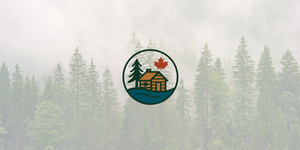The United States announced yesterday that it plans to increase national park entrance fees for foreign tourists - just days after Canada launched its Canada Strong Pass program offering free admission to all Parks Canada sites for everyone, regardless of nationality.
The contrast couldn't be more striking.
Pay to Play (If You're Not From Here)

President Trump's July 3rd executive order, titled "Making America Beautiful Again by Improving Our National Parks" directs the Secretary of the Interior to develop a strategy for "appropriately increasing entrance fees" for non-residents at national parks. The order promises to use the additional revenue to improve park infrastructure while taking steps to "improve services and affordability for United States residents."
The message is clear: America's natural wonders are primarily for Americans. Foreign visitors? Prepare to pay premium prices.
Meanwhile, North of the Border...

Canada has gone the opposite direction. The Canada Strong Pass, running from June 20 to September 2, 2025, offers free admission to all national parks, historic sites, and marine conservation areas operated by Parks Canada
There are no restrictions based on nationality – whether you're from Saskatoon or Stockholm, the deal's the same
As Canada's website proudly states,
"The Pass is available to all visitors, whether you live in Canada or come from abroad. It's an invitation to experience Canada's cultural and natural richness."
What This Says About Us
These divergent policies reveal something deeper about how each country sees itself and its relationship with the world.
This move by the US treats its national parks as a national asset - something to be monetized from outsiders. It's protectionist tourism, where citizenship determines the cover charge.
Canada's approach? It's an open invitation that says our natural heritage is meant to be shared. German hikers in Banff and Japanese families camping in Algonquin aren't extracting resources – they're creating connections, building goodwill, and yes, spending money at local businesses, hotels, and restaurants.

The Bigger Picture
From a pure financial perspective, Canada's approach may actually be the smarter play. By removing the barrier of admission fees, more international visitors will explore our parks, stay in our communities, and contribute to local economies in ways that far exceed a $50 park pass.
But this isn't just about money - it's about values, too.
Do we see our natural treasures as something to guard jealously or share generously? And are our foreign visitors cash cows, or future advocates for our country?
A Personal Take
When we make our parks more expensive for "outsiders," we're not just raising prices. We're raising walls, too.
Canada's free admission summer might be temporary, but the message it sends is permanent: You're welcome here. Our wilderness is your wilderness. Come explore, come connect, come fall in love with this place like we have.
That's the kind of North America I want to live in. One where a German backpacker, an American family, and a Canadian couple can share the same trail, the same sunset, the same sense of wonder - without checking passports at the gate.
The mountains don't care where you're from. Why should we?






Join the Conversation